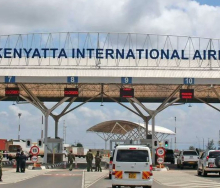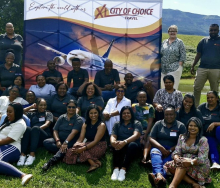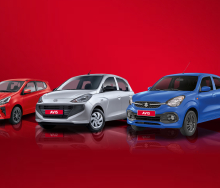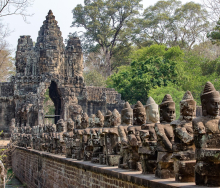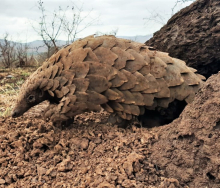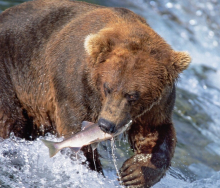Tourism prospects the best in years
COUNTRY director
of Cresta Hotels in
Zimbabwe, Chipo
Mandela, says the
improvement in Zimbabwe’s
tourism fortunes began
some time ahead of last
year’s change of political
leadership.
An upturn in leisure tourism
arrivals was seen in early
2017, part of a general
resurgence of interest
by Northern hemisphere
travellers in Southern African
countries.
“After the change in
political leadership in
Zimbabwe in November, this
trend has not only continued
but has, in fact, increased
significantly,
with indications
highlighting that
the new political
dispensation
has created
a greater
interest in this
country among
travellers from
many source
markets across
the world,”
Chipo says.
The growth
in Zimbabwe’s
hospitality
sector is not
limited to
leisure tourism. Chipo says
hotels in the main business
centres have
seen a dramatic
increase in
business
visitors who
are keen to
examine the
prospects
for trade and
investment.
“This trend
is likely to
continue, too,”
she says,
expressing
the belief that
prospects for
tourism growth
in all spheres,
including events and
meetings, are better than
at any time since the boom
years of the 1990s.
Irene Kufa, tour director
of destination management
company Ventures into Africa,
has noted strong growth in
the number of bookings to
Zimbabwe in the first few
months of 2018, with a
hike of 20%-30% in January,
February, and March over the
same period last year.
Though bookings remain
encouraging, they did slow in
April, May, and June, possibly
because of uncertainty
surrounding the upcoming
elections on July 30.
“It’s always been like this in
Zimbabwe. When there is an
election coming up, bookings
normally do go down, and I
think we’re seeing some of
that this year,” she remarks.
Buoyed by the promise
of sustained growth in the
coming years, the focus
is now on local product,
ensuring it is geared for the
upsurge, says Chipo.
Cresta Hotels, for one, has
stepped up its programme
of product improvement.
So far, the programme has
seen major work undertaken
at Cresta Lodge in Harare
and Cresta Churchill in
Bulawayo and is continuing
with current work at Cresta
Oasis Hotel and Apartments
and at Cresta Jameson, both
in Harare.
Victoria Falls still leads the way
THE Victoria Falls remains
the major attraction in
Zimbabwe, and is likely to
hold that position for the
foreseeable future. While
other destinations around
the country have seen
increased, or renewed,
interest, the Falls has
recorded particularly strong
growth this year.
Africa Albida Tourism
group chief executive, Ross
Kennedy, says monthly
figures from 10 hotels in
Victoria Falls show a 13%
increase in occupancy during
the first three months of
2018. “These bookings
suggest that Victoria Falls
is becoming a one-season
destination – high all year,
with a few short troughs here
and there,” he says. “Talking
to colleagues in the town it
is clear that forward bookings
are much stronger than
usual for the rest of 2018,
and all indicators for 2019
reflect continued growth.”
In preparation for the
increased custom, The
Victoria Falls Safari Club,
which is part of Africa Albida
Tourism’s portfolio, recently
underwent a $600 000
(R8,3m) refurbishment,
with a new swimming pool,
sundeck and gazebo, a
new restaurant, and the
expansion of its central
building. It was completed
in March and feedback has
been positive. The property
boasts strong forward
bookings for the rest of the
year and into 2019.
Ilala Lodge in Victoria
Falls has added a deluxe
extension with 16 rooms
and one executive suite,
says Michele Brown, head
of marketing. “There are now
73 rooms in total after the
extension: three executive
suites, 36 deluxe rooms,
two standard suites and 32
standard rooms.” Facilities
include The Palm Restaurant,
an outdoor swimming pool,
pool bar, boardroom and
spa. Activities include sunset
cruises on the Ra-Ikane.
On June 1, Matetsi Victoria
Falls joined the Africa
In Focus regional product
portfolio. It is set on a 15km
stretch of the Zambezi River,
and is made up of Matetsi
River Lodge and Matetsi
River House.
Matetsi River Lodge has
two intimate river-facing
camps, each with eight
suites and a two-bedroom
family suite. A personal
butler is available as well
as the option of booking a
private safari vehicle.
Matetsi River House is a
spacious exclusive-use villa,
with four air-conditioned,
en-suite bedrooms, and
guests are looked after by
a private chef, butler,
guide and tracker.
Amenities include alfresco
lounge areas, a 20m lap
pool flanking the river,
a fitness studio, library,
boardroom, shopping
boutique, iPads for guest
use, in-room Bluetooth
speakers, a free laundry
service and free WiFi.
Properties aren’t the only
new developments at the
Falls. The Skydive Tandem
Company launched last year
and director, Chris WilkinsonPearce,
told TNW’s sister
publication, Tourism Update,
that guests could charter
flights to any Zimbabwean
destination of their choice,
however the company would
start flying between Victoria
Falls, Hwange and Chobe.
He says the skydiving
option is open seven days
a week, from 06h00 to
18h00. The runway is
5km from Victoria Falls
town. Depending on air
traffic, guests freefall
from 3 000m for around
45 seconds, reaching
speeds of up to 200kph.
All tandem instructors are
certified and their licences
are renewed annually.
Equipment is checked daily
and packed by a rigger.
Those with disabilities will
be accommodated once the
company takes delivery of a
specially made harness.
Heritage tourism deserves a place
THE cultural and heritage
tourism market has
been neglected in recent
decades, says Cresta’s
Chipo Mandela, who puts it
down to the harsh operating
environment.
“At the Zimbabwe Council
for Tourism’s annual Tourism
Achievers’ Awards ceremony
in Harare earlier this
year, a call was made for
Zimbabwe to focus more on
the development of cultural
tourism that taps into the
rich heritage that the country
has to offer, inclusive of
reaching out to travellers
interested in people, history
and artistic endeavours.
“Operators are now
working with local
communities and their
leaders to examine how
to ensure that cultural
tourism grows, but not
at the expense of the
culture overtaken by the
weight of commercialism,”
says Chipo. “A key factor
in Zimbabwe, too, is the
effort to encourage greater
participation in travel and
tourism by women and
young people. There is
widespread recognition that
environmental sustainability
is key to the survival of
tourism and to its future
continuation.”
The Zimbabwe Tourism
Authority (ZTA) has initiated
a programme to empower
rural communities through
its recently revealed heritage
tourism programme that
aims to create jobs and
improve livelihoods.
Corporate affairs head of
ZTA, Godfrey Koti, said five
places of interest had been
identified, all of which were
in rural areas and would be
promoted under the heritage
tourism package.
“We are on a drive
to market all places of
historical significance that
are dotted all over the
country,” said Godfrey. “This
is about packaging our
history. It is pleasing to note
that government has backed
the project. It is recognition
of the value of heritage
tourism in reviving business
in the country. The ZTA has
planned to make these
areas selling points in our
brand Zimbabwe campaign.
These are exciting times
for the tourism sector
because we foresee a boom
in terms of revenue to
rural communities and the
creation of jobs as people
start to visit heritage sites.”
Earmarked sites include
Old Bulawayo, the Pupu
Shangani in Matabeleland
North, Tangwena Village
in Manicaland, Masivngo’s
Trabablas trail and the
Chinhoyi battle site.
“There is no way we can
ignore the value of tourism
to local communities. In
as much as the industry
benefits, so do villagers
around these sites. It is
ZTA’s view that locals are
empowered so that they
have an interest in helping
us market Zimbabwe better.
We are planning to work
with publicity associations,
teachers and culture experts
in all areas known to have a
historic site,” said Godfrey.
Renewed interest countrywide
WHILE Victoria Falls remains
the focus of the country’s
tourism industry, other
destinations have seen
growing interest.
Cresta Hotels’ Chipo
Mandela says there have
been increased numbers
of visitors in most
destinations around the
country, including Hwange
National Park, Lake Kariba
and the Lower Zambezi,
Bulawayo and the Matobo
Hills, Great Zimbabwe, the
Eastern Highlands and the
Gonarezhou area of the
Lowveld.
The new Kariba Safari
Lodge is set to open in
Kariba in September. It is
part of the Zambezi Cruise
and Safaris’ portfolio. The
property will have nine
individual accommodations
fitted with en-suite
bathrooms and private
patios with views of the
lake. The main lodge will
have an elevated deck,
an open-plan lounge, a
restaurant, outdoor patio,
and a bar. There will also be
a separate conference and
wedding venue, which has
been built with lake vistas,
a swimming pool, and
communal boma area. Free
WiFi will be available and
private aircraft charter can
be organised from Victoria
Falls International Airport.
Africa Albida Tourism’s
Ross Kennedy says a
number of new camps and
lodges opened recently,
or are about to open, in
Hwange, representing
significant investment.
According to Chipo, the
key to facilitating significant
and sustained increases
in arrivals in all these
destinations is the creation
of satisfactory scheduled
air services to connect
them, so that it becomes
appealing for visitors to
Victoria Falls to tag on other
attractions during their stay.
“Domestic air travel is
not yet conducive to such
growth and it is pleasing
to hear plans being laid
for improvements in air
services and airports
around the country. Flowing
from this will be increased
offers of packages that
facilitate inclusion of two or
more additional destinations
in a Zimbabwean holiday
visit, over and above the
Victoria Falls.”
Airlines operating in
the region are already
increasing frequencies in
and to Zimbabwe. Hein
Kaiser, gm marketing and
communications at fastjet,
says the airline has already
upped frequencies between
Johannesburg and Harare
to four daily returns, while
flights between Harare and
Victoria Falls grew by 85%
last year. He adds that the
carrier is positive about the
Zimbabwean market, with
the forecast GDP growth
continuing on an upward
curve.
Thembela Dladla, country
manager for RwandAir,
South Africa, says the
fifth freedom granted by
Zimbabwe to the airline,
enabling it to link Cape
Town and Harare, has been
very well received by the
travelling public. Travellers
are sharing positive
experiences with the
improved ease of travel. He
adds that RwandAir views
the Zimbabwean market
as very important and is
working on a long-term plan
to upgrade the aircraft on
the Cape Town-Harare route
to a B737-800NG, replacing
the current CRJ 900.
Self-drive visitors have
often reported multiple
challenges on Zimbabwe’s
roads, but there are
indications that driving is
becoming viable once again.
Brett Mc Donald, md of
destination management
company Flame of Africa,
says: “The road to Kariba
is brilliant. Between Harare
and Kariba there is 377km
of perfect tar road.” He
suggests that those who
want to make the drive
should consider a stop at
the Chinhoyi Caves, which
are about halfway between
Harare and Kariba, or at
the Lion’s Den, where they
can refuel their cars and
have what he considers to
be the best steak roll in the
world.





